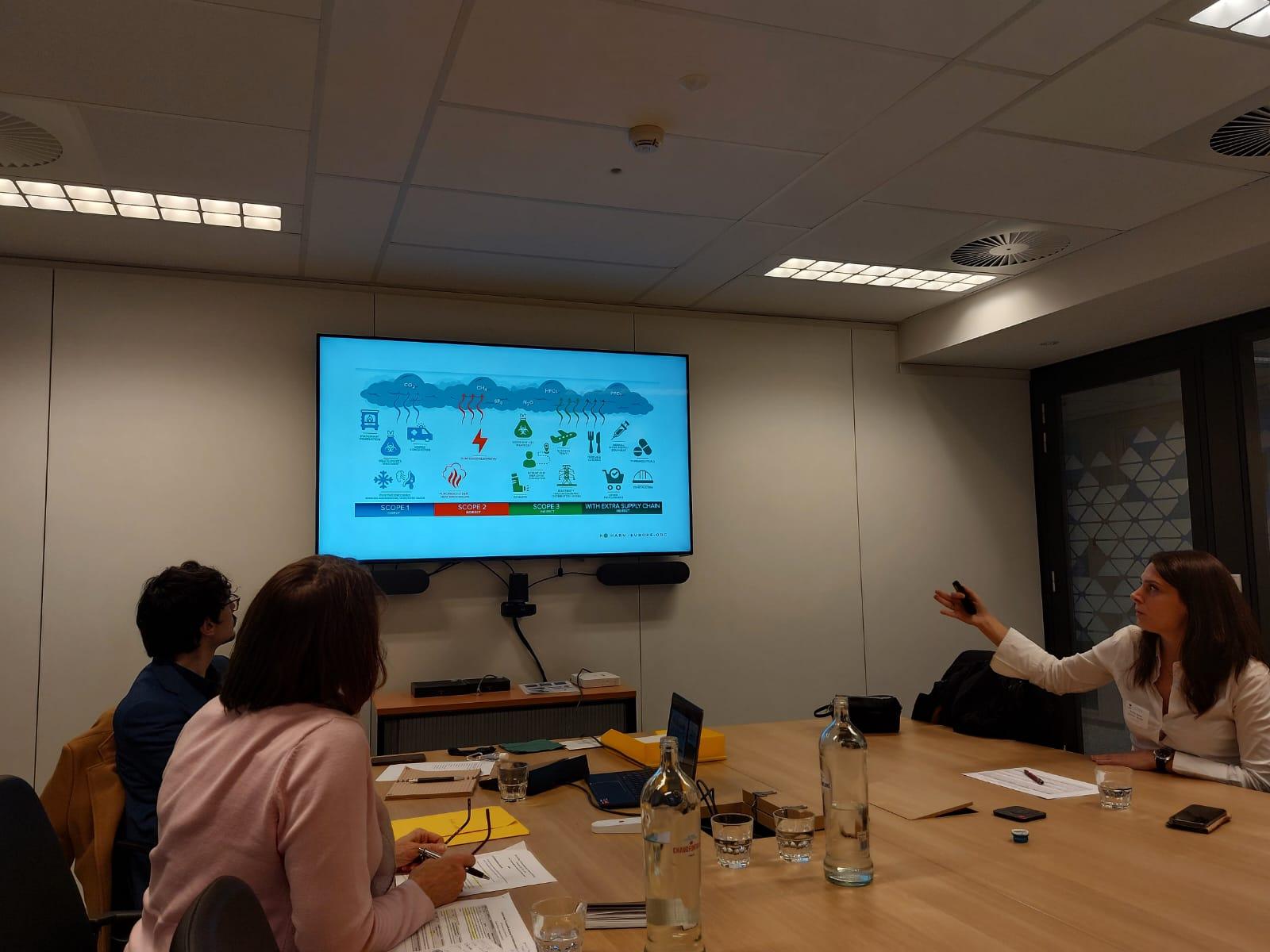
On Thursday 30 November, the European Committee of the Regions’ Interregional Group on Health and Wellbeing (CoR IRGHW) had its last meeting for 2023, with the aim of debating the greening and sustainability of the healthcare systems in Europe. The event was structured around two speeches from Arianna Gamba, Director of Programmes at Healthcare Without Harm Europe, and Marco Di Donato, Policy and Project Officer at the European Regional and Local Health Authorities network (EUREGHA).
Arianna Gamba focused her contribution on the environmental challenges faced by the healthcare sector and presented the work and the vision of Health Care Without Harm Europe to promote and build a more sustainable and greener health sector in Europe. After setting out the context of the three planetary crises currently ongoing (climate change, pollution and exposure to toxic chemicals, and loss of biodiversity), she dived into the interactions between those factors and the healthcare systems. The health sector is one of the major contributors to the climate crisis, producing 5.2% of global net emissions, and the risk is that the sector’s emissions could triple by 2050, taking into account direct and indirect emissions. Healthcare Without Harm Europe is a network of 192 members from 25 countries across the WHO Europe region operating through four action networks: hospitals (including also regions as stakeholders), doctors, nurses, and pharmacists. The aim of the organisation is to innovate medical practices and influence and transform global, European, and local health policies towards greener approaches and practices. The organisation is active in three different programmes: Climate-smart healthcare, Circular Healthcare, and Safer Pharma. Ms Gamba dedicated the last part of her presentation to dive into these three programmes and actions areas currently carrying out by the organisation.
Marco Di Donato gave a presentation about the new Hospital San Cataldo in Taranto, in Apulia Region (IT), EUREGHA member, and explained the steps and approach that led the Region and the Local Agency to build the hospital following environmental guidelines and rules both in its construction phase and organisational aspects. For both construction works and furniture and equipment expenses, the Local Agency took into account environmental requirements (for example, by relying on short-supply chain materials and furniture). The project was developed taking into account the national action plan on Green Public Procurement (PANGPP). During the selection process, the contractor was selected based on its commitment to use recycled materials above the thresholds set by the tender requirements. To reduce as much as possible the consumption of land, the hospital was developed in height but, as located in the countryside, it was kept a balance and limit in this regard to respect and better insert the structure in the natural landscape. Moreover, more than one-third of the total surface of intervention has been allocated to a public green area. Particular attention was devoted to the energy balance, with a notable percentage of coverage thanks to renewable energy sources, with the objective of achieving a “nearly zero energy building” and obtaining the A3 energy classification according to the Apulia Region provisions. Another key point stressed was the reuse of rainwater and wastewater, accumulated in dedicated tanks for reuse as water for firefighting, irrigation, or hospital’s toilet flushing systems. The end of the construction works is foreseen for June 2024, with activation of hospital services as of December 2025.
Lastly, a video by the Welsh National Health Service – EUREGHA member – was displayed, providing a quick overview of the approach, work and areas of focus behind the Health and Social Care Climate Emergency Programme in Wales aiming at reducing the climate impact of the National Health Service.
The next appointment of the CoR IRGHW will be the constitutive meeting for 2024, taking place on 1st February 2024, where Interregional Group members will discuss priorities and work plan for 2024. More information will be available soon on this website.
Have a virtual tour to the Hospital San Cataldo!


